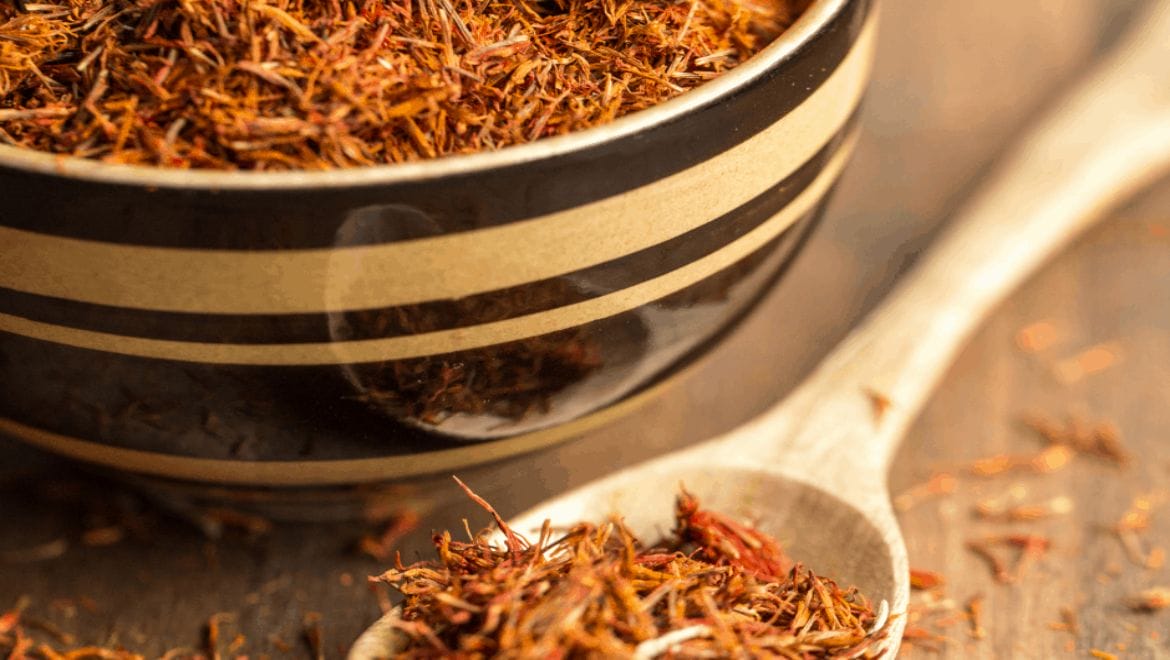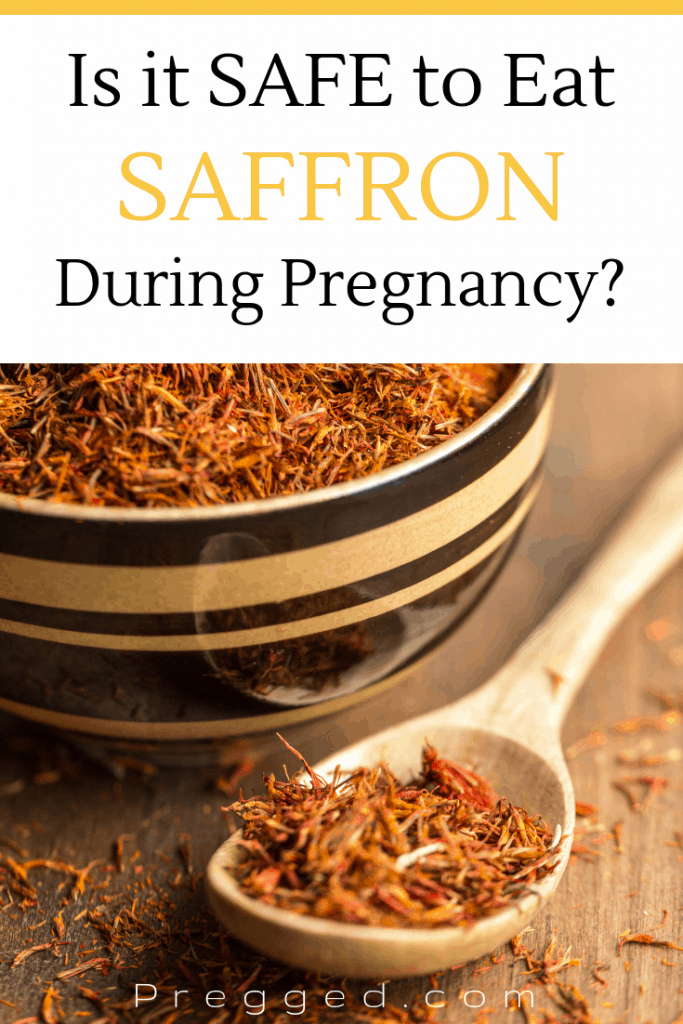
Saffron is a bright crimson-colored and very expensive spice, also called Kesar.
It’s a dried form of part of the Crocus Sativus flower, which grows in the Mediterranean and the Middle East, as well as parts of India.
It has a slightly metallic taste and it also sweet a little like honey.
But do you think it safe to eat saffron in pregnancy?
Find out below…
Why eat Saffron while pregnant?
Some people might suggest taking saffron during pregnancy to make your baby’s skin fairer.
That’s definitely a myth; but strands of saffron could help ease digestion while pregnant, as it lines the digestive tract with a protective coating and is know to relieve discomfort that comes with high levels of acid.
Anecdotal evidence from pregnant women also suggests that making tea infused with effects of saffron can reduce nausea — so it’s worth giving it a go if you’re struggling with morning sickness.
This sought-after spice is known to have mood-lifting properties that can balance the hormonal changes you experience during pregnancy and act as a natural, mild anti-depressant.
So it could help you to manage the pregnancy mood swings and feel a bit brighter on those long days.
And the potassium and crocetin found in saffron are proven to lower blood pressure.
High blood pressure is associated with a number of complications in pregnancy, so taking natural remedies — like upping your saffron intake — can help to protect the health of you and your unborn baby.
This is just a few of the benefits of saffron pregnant or not.
Related Content: Can Eating Cinnamon Cause Miscarriage?
In addition, saffron is high in iron, which means it can help to maintain healthy iron levels in your blood while your body is working hard to grow a human.

Saffron in pregnancy – is it safe?
Saffron is a natural, plant-based remedy, but some suggest that it could cause problems when consumers during pregnancy.
Concerns associated with high saffron consumption include:
- Practitioners of Ayurveda, an ancient Indian medicine system, suggest that saffron raises the temperature of the body which can cause miscarriage. There is little evidence to support this, although studies have shown that saffron can increase the readiness of the cervix for birth in pregnancies which are already at full term.
- If you feel nauseous or have a headache or dry mouth, or feel very anxious after eating saffron, you may be allergic to it. In this case, avoid taking it again while pregnant.
- Vomiting, blood in urine, dizziness, and fainting. Evidence shows that a very high dose of saffron could cause serious and dangerous side effects which could harm a growing fetus. But these effects are caused by consuming large quantities of the spice — as with any spice, herb, or other ingredients, moderate use is advised.
In short, it’s fine to take saffron in pregnancy if you consume small amounts — and stop if you do experience any side-effects.
Add just a few strands of the spice to soup or other meals, or to hot water to make saffron-infused tea.
Here are some foods to avoid during pregnancy:
And it is always advisable to check with your doctor first if you have any concerns.
Sources:
1. https://www.momjunction.com/articles/saffron-during-pregnancy_00392306/#gref
2. https://www.ncbi.nlm.nih.gov/pubmed/24299602
3. https://www.ncbi.nlm.nih.gov/pmc/articles/PMC3941887/
4. https://www.ncbi.nlm.nih.gov/pmc/articles/PMC5285732/
